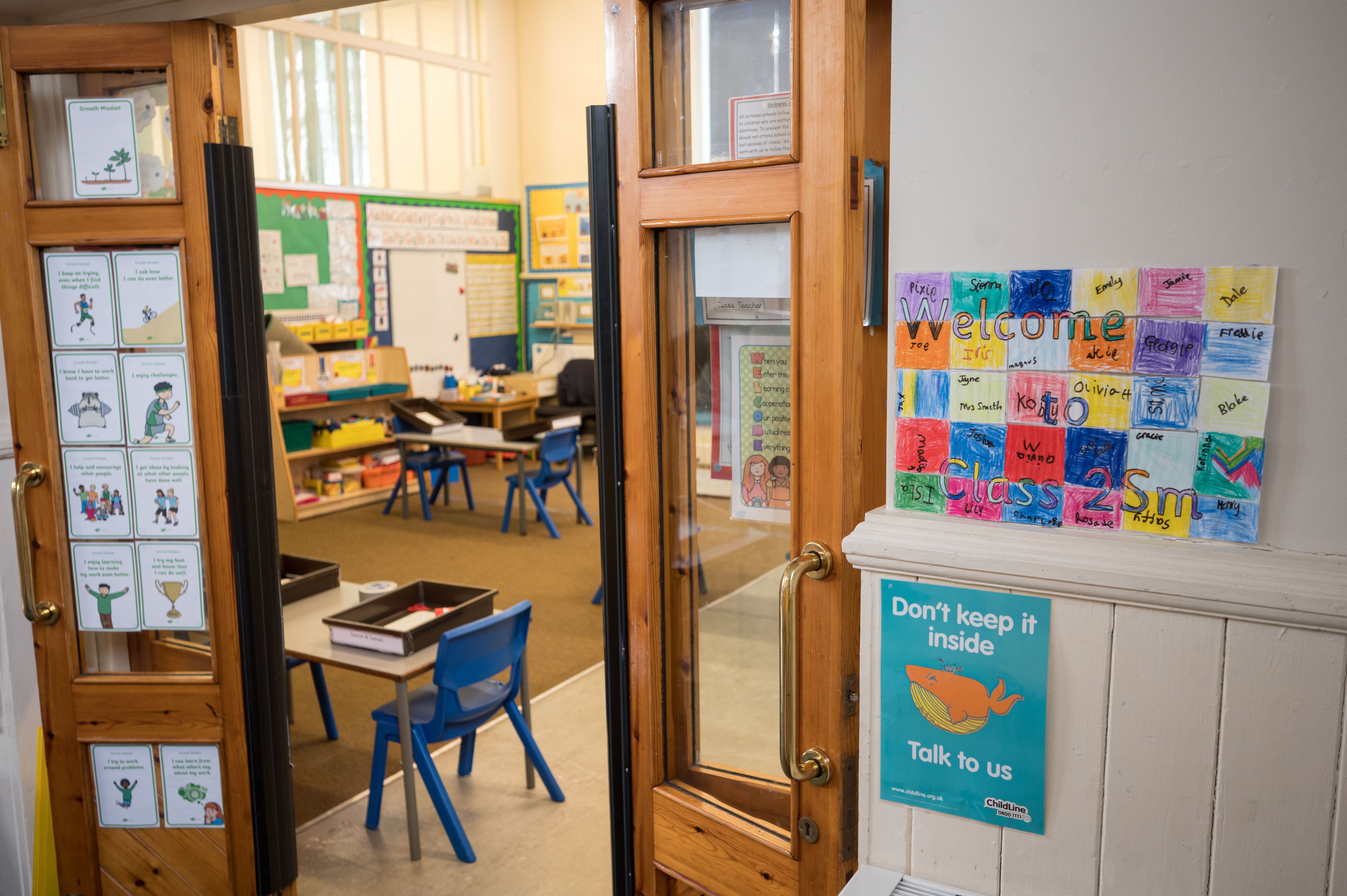Ministers have ‘no handle’ on thousands of ‘ghost children’ off radar in pandemic, says Ofsted
Inspectors warn of lack of knowledge around youngsters particularly vulnerable to abuse and neglect

Your support helps us to tell the story
From reproductive rights to climate change to Big Tech, The Independent is on the ground when the story is developing. Whether it's investigating the financials of Elon Musk's pro-Trump PAC or producing our latest documentary, 'The A Word', which shines a light on the American women fighting for reproductive rights, we know how important it is to parse out the facts from the messaging.
At such a critical moment in US history, we need reporters on the ground. Your donation allows us to keep sending journalists to speak to both sides of the story.
The Independent is trusted by Americans across the entire political spectrum. And unlike many other quality news outlets, we choose not to lock Americans out of our reporting and analysis with paywalls. We believe quality journalism should be available to everyone, paid for by those who can afford it.
Your support makes all the difference.Ministers have “no handle” on the identities or whereabouts of thousands of children who have fallen off the radar during the pandemic, Ofsted has warned.
Chief inspector Amanda Spielman raised alarm about the “harm” the lockdowns had caused children, warning that the fact that so many had “disappeared from teachers’ line of sight” had resulted in significantly lower levels of referrals to social care and a higher risk of neglect.
Robert Halfon, chairman of the Commons education committee, warned on Monday that 100,000 “ghost children” are at risk of abuse after failing to return to school following the closure of schools last year.
Launching Ofsted’s annual report on Tuesday, Ms Spielman called for a “proper register” of children who aren’t attending school to “parallel” the information that schools hold on their pupils, “so that we can understand who sits in which category”.
“There’s a whole range of reasons why people are in that category, and I don’t believe that we really know who those children are, where they’re being educated and who’s taking responsibility for it,” she added.
“What’s worrying is that we simply don’t have a handle. We don’t really know who’s in that list of children who are particularly vulnerable to abuse and neglect.”
It comes as an investigation was launched into the failings that led to the death of Arthur Labinjo-Hughes, the six-year-old who was tortured and killed by his stepmother and father in June last year.
It emerged in court that Arthur was seen by social workers during the first national lockdown just two months before his death in Solihull, west Midlands, in June last year. But they concluded there were “no safeguarding concerns” and closed the file.
The Ofsted report warns that nearly all children in England have fallen behind in their education and suffered as a result of the Covid-19 pandemic, and emphasises the importance of school attendance both for educational and welfare purposes.
Ms Spielman told reporters on Tuesday: “Schools closing clearly has some significant risks for children around the reduction in quality of education for a large proportion.
“But we know that there is a minority of children who sadly are safer in school than out of it, and we have to recognise that by closing schools, we make that minority less safe.”
Shadow education secretary Bridget Phillipson said children had been “let down” during the pandemic.
“Boris Johnson promised to prioritise children’s recovery but threw out his own catch-up chief’s proposals to help children bounce back. The Conservatives have simply not risen to the scale of the challenge,” she added.
The report also finds that many of the youngest children’s progress and development "faltered" amid the pandemic, with some regressing in basic language and social skills.
It raises concerns about children in care feeling less safe due to lockdown restrictions and broken relationships with staff, adding that, in the worst cases, increased levels of anxiety led to self-harm or destructive behaviour.
Leaders told inspectors that some children in alternative provision (AP) settings had become more involved in criminal exploitation, including gang violence, and child sexual exploitation amid the pandemic.
In her commentary in the annual report, Ms Spielman added: “Where some children need a little extra help, they should get it. And children who need specialist care and support must not be left wanting.”
Mark Russell, chief executive at the Children’s Society, said that many services for children were “not well-placed to weather the Covid storm” due to “longstanding issues” including “huge cuts” to government funding for councils and a shortage of suitable care placements.
“This shocking report lays bare how lockdowns have left many children more vulnerable to harm, struggling with their mental health and at risk of grooming by perpetrators out to sexually or criminally exploit them. Some vulnerable children have still not returned to school,” he said.
“More must be done to help the most vulnerable children back into the classroom and support pupils not only to catch-up with learning but also with their well-being. A coherent plan is desperately needed to address these challenges, give children hope for the future and ensure they do not end up as a ‘lost generation’.”
The government has been approached for comment.
Join our commenting forum
Join thought-provoking conversations, follow other Independent readers and see their replies
Comments